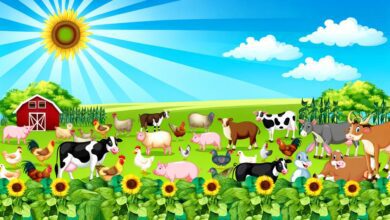You may not be aware, but the intricacies of your daily meals reach far beyond your plate, profoundly affecting the welfare of countless animals. Your dietary choices, whether they are made with convenience, health, or ethical considerations in mind, serve as silent votes for the kind of world you endorse—one where animal welfare is either prioritized or overlooked. As you navigate through the aisles of your local supermarket, you’re faced with options that have cascading effects on animal lives, from the conditions in which they are raised to the respect they are given at the end of their lives. These choices not only mirror your cultural values but also reflect a growing awareness of the interconnectedness of nutrition, ethics, and animal welfare. As you sit at the cusp of this discussion, ponder how a deeper understanding of this relationship might inform your future food selections and the transformative potential they hold for our global community.
Key Takeaways
- Veganism is a commitment to protecting animals and rejecting their exploitation.
- Choosing plant-based meals decreases the demand for animal products and can lead to a decrease in factory farming and animal cruelty.
- Dietary choices directly influence the lives and welfare of farm animals, and demand for ethically sourced food encourages the industry to prioritize animal welfare.
- Embracing a vegan diet not only improves personal health but also advocates for animal welfare.
Understanding Veganism
Delving into veganism, you’ll find it’s more than just a diet; it’s a compassionate commitment to protect animals and reject their exploitation in all forms. When you choose plant-based foods over animal products, you’re not just making a personal health decision; you’re taking a stand for animal welfare. Veganism is rooted in the belief that all animals have the right to live free from harm and suffering—a conviction that guides your food choices and lifestyle.
By abstaining from the consumption of meat, dairy, eggs, and other products derived from farm animals, you contribute to reducing the demand that fuels factory farming. This shift in demand can alleviate the widespread cruelty faced by animals raised for food and foster a more sustainable and humane food system. Moreover, your choice echoes a cultural and ethical movement that respects the lives of farm animals and embraces a world where their welfare is a priority.
Embracing veganism is a powerful way to serve others, particularly the voiceless and vulnerable. It’s not only about what you eat but also about the values you embody and the compassionate world you help create—one meal at a time.
Veganism’s Effects on Livestock
While embracing veganism honors the intrinsic value of animal life, it also casts a light on how our dietary choices directly influence the wellbeing of livestock. You see, when you opt for plant-based meals, you’re contributing to a decrease in the demand for animal products. This shift can lead to a reduction in factory farming, where animals are often reared in conditions that don’t meet high animal welfare standards.
Here’s how your choice affects the lives of these animals:
- Reduced Factory Farming
- Less demand for meat and dairy
- Potential decrease in animals bred for consumption
- Improved chances for reforms in food systems
- Enhanced Animal Diets
- Livestock benefit from diets meeting their nutritional requirements
- Varied food options can prevent nutrient excesses, imbalances, and toxins
- Proper nutrition contributes to animal health and reduces stress
- Sustainable Farming Practices
- Encourages a shift towards farming methods that prioritize animal welfare
- Can lead to more sustainable and profitable practices
- Aligns economic incentives with the ethical treatment of animals
Your compassionate food choices are a powerful expression of care for these creatures. They foster an environment where animals can thrive, aligning with a cultural movement towards respecting all forms of life.
Ethical Implications of Diet
Your dietary decisions not only shape your health, but also carry profound ethical implications for the welfare of farm animals and the sustainability of agriculture. When you consider the content of your meals, it’s vital to recognize that your dietary choices directly influence the lives and welfare of countless animals. By demanding food that comes from sources where ethical practices are paramount, you contribute to an industry that prioritizes animal welfare.
The ethics of your diet are reflected in the well-being of the animals that provide your sustenance. Choosing foods that support humane treatment encourages the industry to adopt practices where animals can express natural behaviors and enjoy diets that prevent health issues, rather than those causing nutrient excesses or imbalances. A well-informed choice can promote welfare and improve performance, aligning your ethics with actions that serve a greater good.
Every meal is an opportunity to influence positive changes in agricultural practices, ensuring that welfare is not sacrificed for profitability. By being culturally sensitive and compassionate in your dietary choices, you’re advocating for a future where ethical implications are considered as important as the food on your plate.
Health Benefits of Vegan Choices
Embracing a vegan diet can lead to significant health benefits, including a lower risk of chronic diseases such as heart disease, diabetes, and certain cancers. When you make compassionate dietary choices that prioritize animal welfare, you’re not only advocating for a kinder world but also enhancing your own well-being.
Here’s how the health benefits of vegan choices can influence your life positively:
- Reduced Risk of Chronic Diseases
- Heart Disease: Plant-based diets are lower in saturated fat, which can improve heart health.
- Diabetes: A high intake of fiber and whole grains often leads to better blood sugar control.
- Certain Cancers: Diets rich in fruits and vegetables may decrease cancer risk.
Plant-Based Advocacy Success Stories
Discover how choosing plant-based options not only nurtures your health but also champions animal welfare, as showcased by inspiring success stories from advocates around the globe. By embracing a diet that forgoes animal products, you contribute to a culture of compassion and respect, aligning your consumption with the highest ethical standards, such as those upheld by Certified Animal Welfare Approved by AGW.
In the Commons of global opinion, you’ll find plant-based advocacy success stories that resonate with a commitment to service and help. Retailers are increasingly sourcing from farms that are certified under Global Animal Partnership Steps 4, 5, 5+, ensuring pasture access and humane conditions for animals. This shift is a testament to the power of consumer choice in influencing industry terms.
Your choice to support these retailers and manufacturers is a form of advocacy that reverberates through the supply chain. When you opt for plant-based alternatives, you join a growing community dedicated to service, where every meal becomes an opportunity to help ensure the welfare of our fellow beings.
Frequently Asked Question
Is Dietary Choice Important to Animal Welfare?
Your dietary choices greatly affect animal welfare. Choosing meat alternatives and plant-based options reflects ethical consumption, supports cruelty-free diets, and upholds higher welfare standards through compassionate eating and sustainable farming. You’re responsible for the impact.







